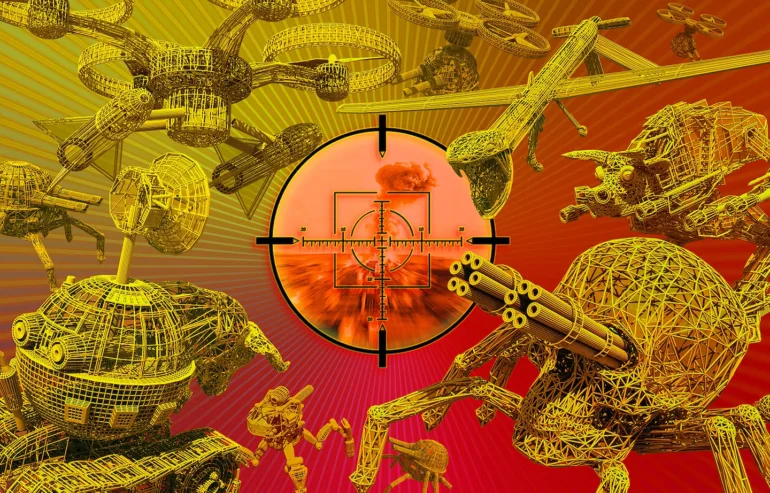TL;DR:
- Experts raised concerns about the proliferation of AI in weapon systems among non-state actors such as terrorist groups and mercenaries at a recent UK Parliament hearing.
- The software nature of AI models used in a military context makes them challenging to regulate and prevent from falling into malicious hands.
- Current non-proliferation regimes and export controls are designed for traditional hardware-based weapons and not AI software.
- The lack of established “war game” theories for non-state actors using AI-based weapons adds to the uncertainty.
- The unreliability of today’s artificial intelligence and the difficulty of deterring non-state actors were also highlighted.
- The shift of innovation in defense technology from the public sector to the private sector has raised concerns over the proliferation of AI-enhanced weapons.
- The private sector, including large multinational corporations, is driving the development of AI technology, shaping the debate on governance and capabilities.
- There is a strong incentive to cheat in regulation attempts and a huge challenge in monitoring and validation of arms control regimes.
- Hundreds of computer scientists, tech industry leaders, and AI experts recently signed an open letter calling for a pause in the training of AI systems more powerful than GPT-4, emphasizing the need for caution and responsible governance of AI technology.
Main AI News:
In a recent hearing before the UK Parliament’s House of Lords AI in Weapon Systems Committee, experts raised concerns over the proliferation of AI in weapon systems among non-state actors such as terrorist groups and mercenaries. Assistant Director of RAND Europe, James Black, informed the committee that the software nature of AI models used in a military context makes them challenging to regulate and prevent from falling into malicious hands. He stated that current non-proliferation regimes and export controls are designed for traditional hardware-based weapons and not AI software.
Moreover, the lack of established “war game” theories for how non-state actors might behave using AI-based weapons adds to the uncertainty. Black also highlighted the unreliability of today’s artificial intelligence, which could have serious consequences in a military context. RAND, a non-profit policy research organization, has a long history of applying game theory to Cold War nuclear weapons proliferation.
Black also discussed the issue of escalation and the difficulty of deterring non-state actors. He explained that current deterrence theories evolved during the Cold War and are not configured to address decentralized and loosely structured non-state actors. Unlike earlier military threats, the private sector is significantly ahead of government research in the development of AI-enhanced weapons, adding another layer of complexity to the situation.
The shift of innovation in defense technology from the public sector to the private sector has raised concerns over the proliferation of AI-enhanced weapons. Private sector companies, including large multinational corporations, are driving the development of AI technology, shaping the debate on governance and the capabilities available.
Professor of strategy at King’s College London, Kenneth Payne, warned the committee that even if governments tried to regulate the proliferation of AI weapons, there would be a strong incentive to cheat. He stated that the signature for developing AI is small and does not require large facilities like uranium enrichment. This makes monitoring and validation of arms control regimes challenging.
Payne expressed his skepticism about the prospects for regulation, given the huge incentive to cheat if AI technologies confer a profound military advantage. This concern was echoed by hundreds of computer scientists, tech industry leaders, and AI experts who recently signed an open letter calling for a pause in the training of AI systems more powerful than GPT-4. The signatories, including Steve Wozniak, Elon Musk, and Grady Booch, emphasized the need for caution and responsible governance of AI technology.
Conlcusion:
The proliferation of AI in weapon systems among non-state actors is a significant concern, as the software nature of AI models makes them challenging to regulate and prevent from falling into malicious hands. The shift of innovation in defense technology to the private sector, including large multinational corporations, adds another layer of complexity to the situation. The lack of established “war game” theories and the unreliability of today’s artificial intelligence also raise red flags.
Despite attempts to regulate the spread of AI weapons, there is a strong incentive to cheat and a significant challenge in monitoring and validation of arms control regimes. This presents a unique set of challenges for the market, as the development of AI technology is shaping the debate on governance and capabilities. Companies and stakeholders in the market must prioritize responsible governance and caution when dealing with AI technology, especially in a military context.

